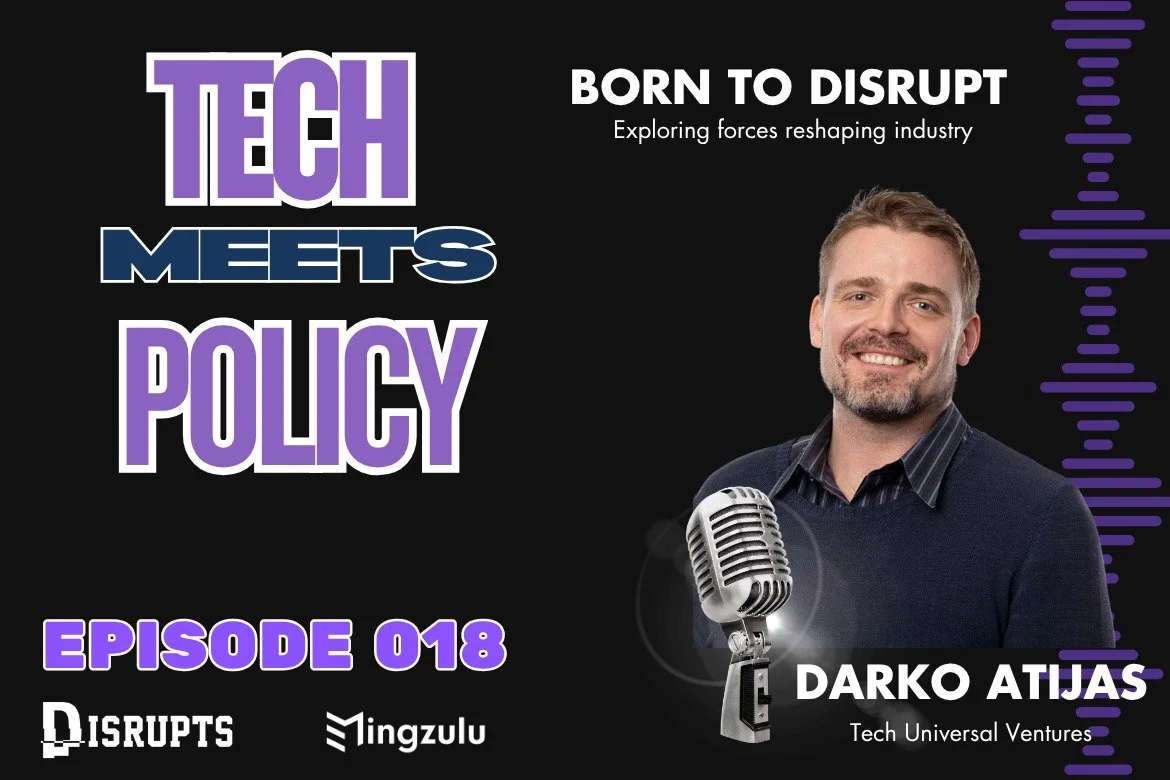Born to Disrupt – Darko Atijas on Private Equity, AI and Building Value in the Middle East
In this episode of Born to Disrupt, hosts Simon Hardie and Grant Niven are joined by Darko Atijas, Chief Operating Officer at Tech Universal and a senior figure in the family office and private equity space. With a career spanning two decades across Australia, the UK and now the Middle East, Darko offers a candid and insightful view into the region’s evolving investment landscape, the challenges facing SMEs, and the opportunities emerging from the intersection of technology, AI and finance.
Darko begins by reflecting on his journey, from spinning out startups from the Australian government to building a profitable managed services business in the UK, serving clients such as Warner, Macquarie and Baker McKenzie. His early investments led to successful trade exits and eventually into corporate finance and private equity. The COVID-19 era became a period of growth for his boutique firm, which funded over twenty deals exceeding $200 million in syndicated investment and half a billion in debt. The move to Abu Dhabi, he explains, was driven by both family and business opportunities, as the region’s investment scene began to mature.
The conversation turns to the private equity and M&A landscape in the GCC. Darko observes that while the region has made impressive strides, the market remains relatively immature compared with OECD economies. Small and medium-sized enterprises, in particular, face liquidity and financing challenges, with limited access to factoring, leasing and traditional bank loans. He highlights the “funding chasm” between early-stage VC and growth-stage private equity, noting that while capital is abundant, it often comes with restrictions that make it difficult for SMEs to scale.
Simon and Grant note the rise of fintech lenders such as Beehive, Forus Invest and Lendo, which are helping bridge that SME finance gap. Darko agrees but stresses that despite this progress, access to mid-sized capital remains limited. “There’s definitely a gap in the middle,” he explains, suggesting that relationship-driven M&A and sector-specific investment strategies are key to success in such an opaque market.
When asked about investor behaviour in the GCC, Darko offers a striking metaphor: “It’s like flying through space—you either float endlessly or suddenly get pulled into a vortex that moves you forward fast.” While the region is awash with capital, he cautions that it takes persistence and strong relationships to access it. Investors are becoming increasingly selective, and success often depends on trust, credibility and local presence.
The discussion moves to perceptions of private equity as predatory. Darko’s response is pragmatic: “All finance is mercenary to an extent.” He describes how some accelerators and lenders impose onerous terms on founders, often taking excessive control or charging high fees. His advice to entrepreneurs is simple but powerful: “If you don’t need investment, don’t take it.” Founders, he argues, must prioritise governance, understand voting rights and maintain control over their future options. He encourages them to think long term about their equity and exit structures rather than chasing vanity valuations for social media acclaim.
As the conversation shifts to the broader ecosystem, Darko notes that policy reforms and long-term national visions—such as Saudi Arabia’s Vision 2030 and the UAE’s 2071 plan—are creating fertile ground for alternative asset managers, hedge funds and private credit firms. This convergence of capital, policy and talent will, he predicts, mature the financial ecosystem in time.
However, talent shortages, particularly in engineering and AI development, remain a major barrier. While the region attracts global expertise, there is still a shortage of local technical talent to sustain the rapid digital transformation underway. Many firms continue to rely on offshore teams in Europe or India while keeping commercial operations in the Gulf.
The episode closes with a discussion on AI investment and infrastructure, where Darko divides the opportunity into four segments: data centre construction, energy supply, venture-backed AI applications, and managed service providers. He predicts that the biggest winners will be companies managing high-quality AI infrastructure and offering “GPU-as-a-service” solutions. For enterprises, he says, the real value will come from integrators who can translate AI hype into measurable business outcomes.
The hosts end by reflecting on the Middle East’s transformation—from a region once dismissed as “too small” for tech investment to one now driving global innovation and attracting sophisticated capital. As Grant remarks, “Once again, the Middle East is a crucible for the global economy.”
Across the conversation, Darko Atijas captures the entrepreneurial pulse of the region: pragmatic, ambitious and increasingly global. His message to founders is clear—focus on fundamentals, build relationships, and don’t take money just because you can. In a region where opportunity moves in sudden bursts, resilience and strategy remain the ultimate disruptors.

